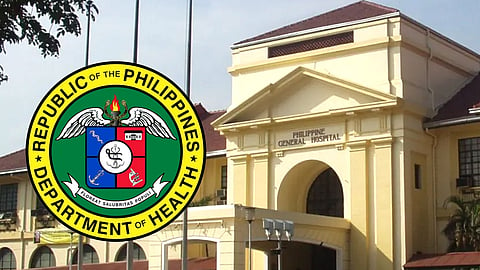
- NEWS
- the EDIT
- COMMENTARY
- BUSINESS
- LIFE
- SHOW
- ACTION
- GLOBAL GOALS
- SNAPS
- DYARYO TIRADA
- MORE

Senator JV Ejercito is pushing for a P70 billion supplemental budget to strengthen the country’s universal healthcare system and support the implementation of zero-balance billing for indigents, persons with disabilities, and public hospital patients.
But the proposal comes at a time when government finances are under considerable strain, with both national debt and the budget deficit rising significantly as of midyear 2025.
Data from the Bureau of the Treasury showed that the Philippines’ outstanding debt climbed to P17.27 trillion by end-June, up 2.1 percent from May and 11.5 percent higher than the same period last year. This already represents 99.5 percent of the government’s full-year debt program of P17.35 trillion.
The national government’s debt stock remains heavily tilted toward domestic borrowing, which accounts for 69.2 percent or P11.95 trillion, while external obligations make up the remaining 30.8 percent or P5.32 trillion.
Meanwhile, the country’s budget deficit widened to P241.6 billion in June – almost 16 percent higher than the same month in 2024 and 67 percent more than May’s shortfall. From January to June, the total deficit reached P765.5 billion, reflecting increased government disbursements outpacing revenue growth.
Despite the financial picture, Ejercito believes the government can and should prioritize funding for health services.
“If this passes, the P70 billion supplemental budget will be a big help in supporting the President’s call for zero-balance billing,” Ejercito said in Filipino.
“It will also strengthen PhilHealth’s benefits by expanding coverage and reducing out-of-pocket expenses for Filipinos.”
Ejercito noted that PhilHealth's participation in medical bills should rise to at least 30 to 50 percent as part of the goals under the Universal Health Care law.
He added that under the proposed system, patients in Department of Health (DOH)-run hospitals, particularly those in wards and classified as indigent or PWDs, should no longer be charged out of pocket.
BTr data show that total revenue collection for June reached P306.9 billion, a 3.5 percent increase from the same month in 2024. Most of this came from tax collections, led by the Bureau of Internal Revenue (P200.5 billion) and the Bureau of Customs (P77 billion). Increases were noted in corporate income tax, VAT, and excise taxes, including those from tobacco products and electronic cigarettes.
Non-tax revenues, however, dropped by 43 percent year-on-year to P26.8 billion, due to a high remittance base in 2024. Treasury income also declined significantly to P16 billion in June, down from P83 billion in May.
On the spending side, the government disbursed P548.5 billion in June, an 8.5 percent increase from last year, with primary expenditures accounting for 89.5 percent.
With both borrowing and spending on the rise, the proposed supplemental budget would require careful planning to ensure that it does not further widen the deficit.
As deliberations move forward, lawmakers are expected to weigh the urgency of expanding healthcare services against the backdrop of limited fiscal space.
Ejercito remains optimistic: “If the government has extra revenue, let’s use it for this – because this is for public service. And I believe there’s nothing wrong with that, especially since it supports health services and universal healthcare.”
